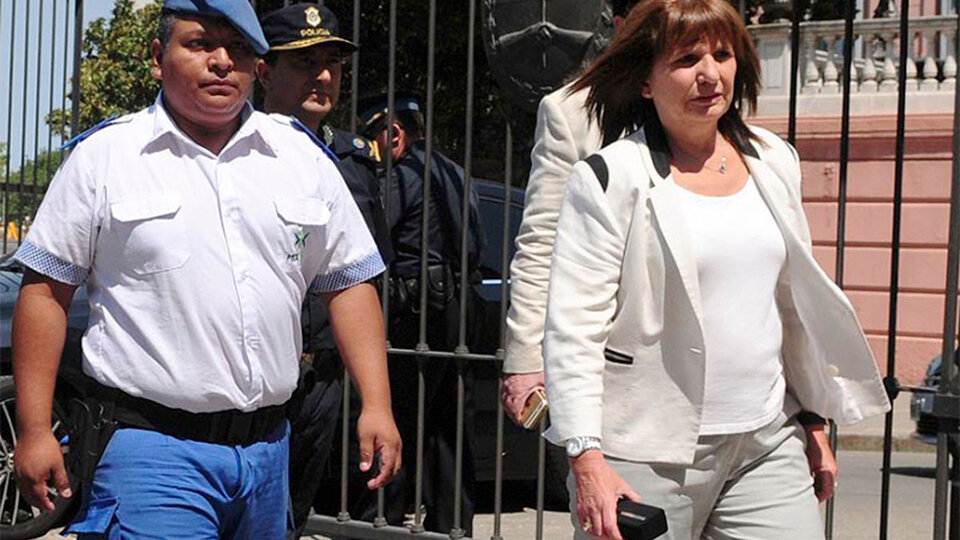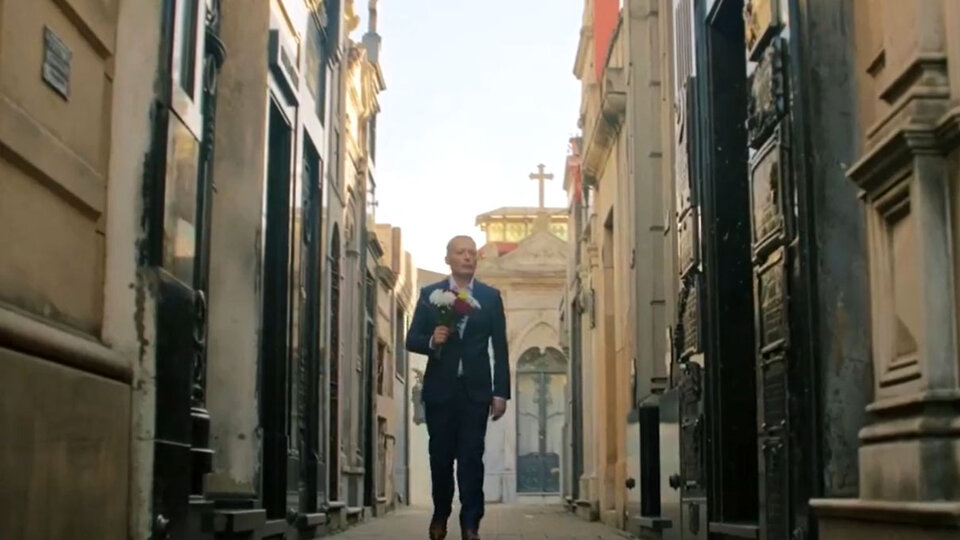The National Court of Cassation annulled the conviction of police officer Luis Chocobar for the murder of Juan Pablo Kukoc. In a technical ruling that emphasizes “contradictions” of the first instance judges when assessing key aspects of the facts, the chambers ordered that the trial of the police officer who in 2017 gave name to the “Chocobar doctrine” be re-trial. ” by shooting from behind the young man who had just assaulted a tourist. With Javier Milei and Patricia Bullrich at the helm, the Government jumped on the news to celebrate a ruling that, according to the minister, endorses “the doctrine of the good police officer.” But in reality the ruling does not pronounce on the underlying issue. In fact, the holding of the new trial could also lead to a greater sentence for Chocobar, who had been sentenced to two years in suspended prison for “excess in the line of duty.”
One post after the other. Chocobar’s lawyer, Fernando Soto, today a Bullrich official in the Ministry of Security, started at midday. “Notice,” wrote the lawyer in his Quickly, the President joined him: “The uniformed men are the good guys and the criminals are the bad guys. This is where the Zaffaroni doctrine ends,” Milei continued from his trip to the United States. The minister closed minutes later: “The Chocobar doctrine always was, is and will be the fulfillment of the duty of a good police officer: to take good care of Argentines,” she published.
Bullrich’s text was the only one accompanied by a video, in which the minister made at least one “error”, celebrating that the Chamber “gave absolution” to her protected police officer. It is not like this. Judges Eugenio Sarrabayrouse and Horacio Días simply annulled the original sentence and ordered a new trial. In the 166-page ruling, the chamber members even discussed the possibility of an acquittal, as Soto had requested in his appeal, and rejected it by maintaining that the case requires “the production of evidence and immediacy typical of a debate held before an oral court”.
The failure is mainly technical. It does not make further value judgments nor does it seek to determine the guilt or not of Chocobar, then an agent of the local police of Avellaneda, nor the possible fraud when shooting Kukoc, who at that time was already fleeing after assaulting and stabbing the tourist Frank Wolek in the La Boca neighborhood. What Sarrabayrouse and Días do emphasize is the “contradictions” of judges Jorge Apolo, Fernando Pisano and Adolfo Calvete, of the Oral Juvenile Court No. 2, who in May 2021 sentenced Chocobar. They affirm that, in this way, an “argumentary unit” was not constituted to support the positions in key aspects nor, consequently, the majority necessary to issue a ruling.
“The self-contradictions and deficits in the reasoning of the three judges prevent us from knowing what Chocobar represented specifically in relation to the homicide,” writes, for example, Judge Días when justifying his vote. Sarrabayrouse supports it: “The three votes affirm different circumstances regarding core aspects of the event attributed to Chocobar,” he says. The fundamental contradictions pointed out by the judges revolve around two aspects that were debated in the trial: the quantity and modality of Chocobar’s shots, and an alleged “movement” or “turn” by Kukoc that the police officer could have interpreted as a attack towards him, motivating him to fire the shots.
“There is no way to reconcile a first version, according to which six of a total of seven shots were fired for an attempted attack and a final one to stop the aggressor’s escape; a second version that presents four shots directed in order to stop the escape, preceded by three others in the air, intimidating; and a third that includes three shots in the air, intimidating, and another four fired misinterpreting an imminent attack,” writes Días about the first aspect, to account for the differences between the versions written by the three judges in the grounds of the ruling.
In relation to the second point, the alleged “movement” of the victim before being shot, Sarrabayrouse points out that one of the judges considered valid the existence of a “very brief threat of attack”, another “denied that there had been aggression on the part of the of Kukoc”, while the third “was not clear about the existence of this turn”. “There is also no coincidence regarding the quantity and direction of the shots fired by Chocobar,” adds the cameraman.
For the judges of Chamber II, both points are key when evaluating the evidence, in particular to determine the intention or not to kill in the action of the police officer, convicted before the ruling for “excess in the performance of duty.” . To such an extent that, in his reasoning, Sarrabayrouse wrote that the first instance ruling shows that the judges concluded “the only unanimous idea” that Chocobar “did not intend to kill Kukoc”, something that is “insufficient to the time to analyze the presence or absence of fraud”.
Meanwhile, some other inaccuracies emerge from Minister Bullrich’s video. The minister mentions, for example, that the judges said that “all the evidence was wrong” and that “there had been real discrimination against Chocobar.” The truth is that the chamberlains did not make any assessment of the evidence but rather of the judges’ rationale, while in the 166 pages of the ruling the word “discrimination” or any associated concept does not appear even once. The minister’s publication occurs in the midst of the presentation of a reform of the Penal Code that, among other things, proposes the expansion of legitimate defense for security forces.
“Cassation says absolutely nothing about the merits, it does not say that we as the plaintiff or the defense are right, it simply says that the sentence is very defective in administrative terms and that, therefore, a new one must be issued,” he clarifies in dialogue with Page 12 Pablo Rovatti, lawyer for Kukoc’s family, who in his appeal had requested a worsening of the sentence. For Rovatti, in any case, the Cassation decision is “excessive”, since “with some effort it was possible to reconstruct the central aspects of the case in the judges’ votes.”
“The central thing is that the final shots were fired when Juan Pablo Kukoc was fleeing with his back turned without being a danger to anyone. And this is something that can be seen in no less than a video and that, properly interpreted, the sentence said,” adds the lawyer of the Legal Assistance and Sponsorship Program for Victims of Crimes of the Public Ministry of Defense. The family, thus, is preparing to wait for a new trial for which, according to Rovatti, they will make the necessary presentations in order to make it happen as quickly as possible. The first instance ruling had been questioned by the complaint, which had proposed a greater penalty for the crime of aggravated homicide “for having been committed by a police officer with abuse of his duties.”
On the other hand, Soto has already advanced the steps to follow. The lawyer, defender of other accused or already convicted police officers, such as the three Buenos Aires police officers who murdered Lucas González, reported that they will appeal to the Supreme Court to directly suspend the decision to redo the trial and acquit his client. . The chambermaids, meanwhile, ordered that TOM 2 withdraw from the case and that a different court be drawn to take charge of the new trial.


